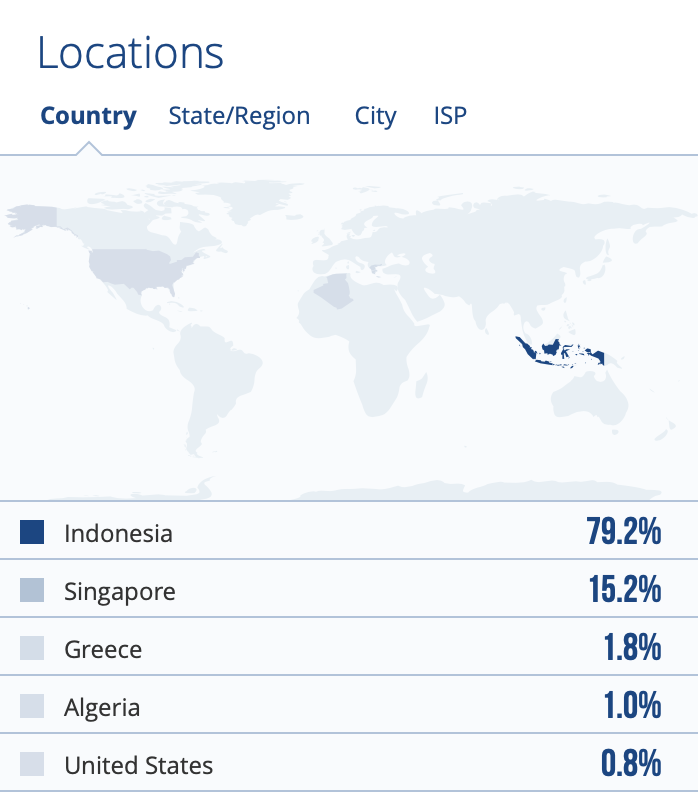THE USE OF MOVEMENT IN LEARNING ENGLISH
DOI:
https://doi.org/10.31980/eeal.v7i1.1444Keywords:
movement games techniques, teaching speaking, young and adult learnerAbstract
This research investigates the impact of movement games on students' speaking performance. Employing a qualitative descriptive design, the study was conducted at an Islamic elementary school in Garut with 4th-grade students as participants. Data were collected through observations, students' speaking scripts, and interviews. The findings indicate that movement games significantly increased students' enthusiasm for learning English, improved their pronunciation, and expanded their vocabulary. Thus, movement games are a promising alternative for enhancing students' speaking skills.
References
Ahmad, J. (2012). English language teaching (ELT) and integration of media technology. Procedia-Social and Behavioral Sciences, 47, 924-929.
Ansarnur, A. (2021). The Effect Of Utilizing Hello English Application On Students’ Writing Skill Of Descriptive Text At The Tenth Grade Of SMA Swasta Raudhatul Jannah (Doctoral dissertation, Universitas Islam Negeri Sumatera Utara).
Biloon. S.J. (2017) Different Reasons to Play Games in an English Language Class. Journal of Education and Training Studies, Vol. 5, No. 1. Diakses pada 15 Maret 2023.
Bland, J. (2015). Teaching English to Young Learners: Critical Issues in Language Teaching with 3-12 Year Olds. London: Bloomsbury Publishing Plc.
Cahyati, S. S., Parmawati, A., & Atmawidjaja, N. S. (2019). Optimizing English teaching and learning process to young learners (a Case Study in Cimahi). Journal Of Educational Experts (JEE), 2(2), 107-114.
Chirandon, A., C. Laohawiriyanon and A. Rakthong. 2010. ‘The effects of teaching English through games’. The 2nd International Conference on Humanities and Social Sciences. Faculty of Liberal Arts, Prince of Songkla University, Thailand. Retrieved from http://fs.libarts.psu.ac.th/research/conference/proceedings2/4pdf /006.pdf
Creswell, J. W. (2005). Educational Research. Planning, Conducting, and Evaluating Quantitative and Qualitative Research, Second Edition. New Jersey: Pearson Merrill Prentice Hall.
Diana, N. P. R. (2010). The advantages and disadvantages of using games in teaching vocabulary to the third graders of top school elementary school. Final Project Report. Sebelas Maret University.
Emda, A. (2017). Kedudukan Motivasi Belajar Siswa Dalam Pembelajaran. Lantanida Journal
Yelvia, E., Syafitri, W., Kardena, A., & Dewi, M. P. (2023). THE EFFECT OF USING PICTIONARY GAMES ON STUDENTS’VOCABULARY MASTERY. ELP (Journal of English Language Pedagogy), 8(1), 56-65.
Filgona, J., Sakiyo, J., Gwany, D. M., & Okoronka, A. U. (2020). Motivation in learning. Asian Journal of Education and social studies, 10(4), 16-37.
Harmer, J. (2007). How to teach English. Harlow: Pearson Education Limited.
Hasbi, M., Munawir, A., Ahmad, G., & Khair, U. (2022). Teaching Vocabulary Using Games: Empowering Students' Interest in ELT Classrooms. Jurnal Pengabdian Kepada Masyarakat Patikala, 1(3), 155-160.
Hayikaleng, Nuramah, Subadrah Madhawa Nair, and Hariharan N. Krishnasamy. 2016. “Thai Students ’ Motivation on English Reading.” International Journal of Education and Research 4(6):477–86.
Hermansyah, S., Lababa, L., Asrifan, A., Saleh, F., & Fadhillah, N. (2022). Building Story Games Toward Student’s Speaking Ability. La Ogi: English Language Journal, 8(2), 136-143.
Humairoh, S., Kardena, A., & Novianti, R. (2023). THE EFFECTIVENESS OF SIMON SAYS GAME TO IMPROVE STUDENTS VOCABULARY MASTERY IN LEARNING ENGLISH. Jurnal Pendidikan, Bahasa dan Budaya, 2(1), 49-55.
Ibrahim, K. (2017). The impact of ecological factors on game‐based L2 practice and learning. Foreign Language Annals, 50(3), 533-546.John W.Creswell, Educational Research:Planning, Conducting, and Evaluating Quantitative and Qualitative Research, Fourth Edition, (Boston: Pearson Education, Inc., 2012), p. 206.
Kartini, A., & Sriyanto, S. (2023). The Effect of the Quizizz Game on Increasing Motivation and Social Studies Learning Outcomes at the Junior High School Level. Scaffolding: Jurnal Pendidikan Islam dan Multikulturalisme, 5(3), 246-262.
Klimova, B. F. 2015. ‘Games in the teaching of English’. Procedia — Social and Behavioral Sciences. Vol. 191, pp. 1157–1160. Retrieved from https://www.sciencedirect.com/science/article/pii/S1877042815 025720
Kurniawan, S. S. (2013). Improving Students’ Motivation in Learning Speaking Skills Using Movement Games For The 4 Th Grade Students at SD 1 Terong in Academic Year of 2013/2014 (Doctoral dissertation, YOGYAKARTA STATE UNIVERSITY).
Lewis, G., & Bedson, G. (1999). Games for children. Oxford University Press.
Mihalas, S. T., Allsopp, D., Morse, W. & P. Alvarez, M. (2009). Cultivating Caring TeacherStudent Relationships in Secondary Settings: Enhancing School Success for Students with EBD. Remedial and Special Education, 30. 108-125.
Miles M.B., Huberman M. (1994). Qualitative data analysis: An expanded sourcebook (2. ed.). London.
Ningsih, N. L. A. B. H. (2023). The importance of game-based learning in English learning for young learners in the 21st century. The Art of Teaching English as a Foreign Language (TATEFL), 4(1), 25-30.
Nufus, T. Z. (2018). Teaching English to Young Learners in Indonesia (Pros and Cons). English Language in Focus (ELIF), 1(1), 65–70.
Suharsimi, A. (2010). Prosedur Penelitian. Yogyakarta: PT. Rineka Cipta
Tahmit, M., Nastiti, N. D., & Rahim, A. R. (2021). Improving student vocabulary mastery through the pictionary words game in fifth grade of Madrasah Ibtidaiyah Tarbiyatul Athfal Sumurber. KONTRIBUSIA, 2 (2), 34-38.
Uddiniyah, D.N., Silfia, E. (2019). An Analysis of Students’ Motivation in Learning English at SMAN 8 Kota Jambi Academic Year 2018/2019. Journal Of English Language teaching, Vol 3 No.2. Diakses pada 18 Maret 2023
Wang, Y. J., H. F. Shang and P. Briody. 2011. ‘Investigating the impact of using games in teaching children English’. International Journal of Learning and Development. Vol. 1. No. 1, pp. 127–141. Retrieved from https://www.macrothink.org/journal/index.php/ijld/article/ view/1118/0
Yolageldili, G., & Arikan, A. (2011). Effectiveness of Using Games in Teaching Grammar to Young Learners. Online Submission, 10(1), 219-229.
Yulistiani D.H. 2016. Enhancing Motivation In Learning English: Students In Primary School. Jurnal Edulingua, Vol 3. No.2. Diakses pada 20 Maret 2023
Zakaria, N. Y. K., Zaini, H., Hamdan, F., & Norman, H. (2018). Mobile game-based learning for online assessment in collaborative learning. International Journal of Engineering & Technology, 7(4.21), 80-85.
Downloads
Published
How to Cite
Issue
Section
License
Copyright (c) 2024 English Education and Applied Linguistics Journal (EEAL Journal)

This work is licensed under a Creative Commons Attribution-NonCommercial-ShareAlike 4.0 International License.






